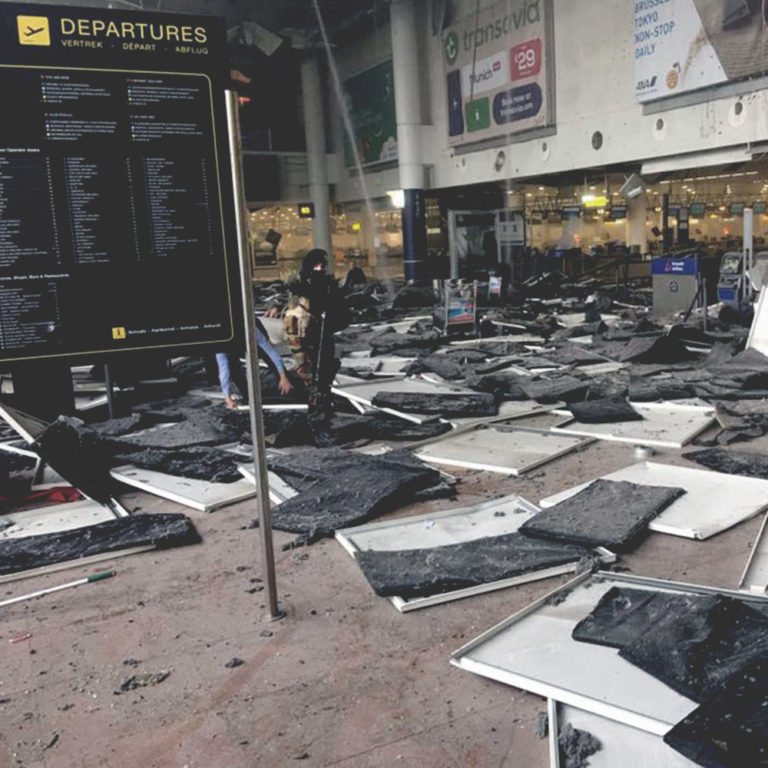I spend a ridiculous amount of time listening to debates between Christians and non-believers (because I’m weird like that.)
Ranging from the informative to the downright bizarre, these conversations usually start out civil enough, with a veneer of forced politeness. But sooner rather than later, thinly veiled animosity almost always turns to downright contempt, and a shouting match ensues that ends in an atheist popping a vein or a believer retorting with a snarky “I’ll pray for you”.
Inevitably though, whether the topic is evolution or morality or the problem of evil or the engine capacity of the Popemobile, these conversations will, at one point or another, devolve into a heated argument about whether the Bible is still relevant or not.
It ain’t a debate until the Good Book takes a good bashing, it seems.
At this stage, the atheist is (apparently) required to launch into a diatribe against the Bible – usually claiming that the holy writ is little more than a bumper collection of ancient superstitions with about as much relevance to the modern world as a presentation on Amish values would have to delegates at a tech convention.
The argument is always more or less the same: That a book written thousands of years ago can not possibly be seen as a reliable source of truth and inspiration in an age of science and naturalism and individualism and all the other sophisticated -isms we’ve come to value in a (post) modern era. Therefore, the pundits proclaim, the Bible’s days are numbered, and you might as well make your peace with it.
On the surface, of course, these arguments seem perfectly reasonable. It’s why atheist writers shift gazillions of copies of their pop science bestsellers; and it’s why smug skeptics keep declaring that the end is nigh for your good ol’ NIV.
Yet, a quick look at history soon reveals the naivety of our smug friends’ predictions. Because if the past has taught us anything, it’s that the Bible has a remarkable ability to outlast hysterical critics, changing philosophies, and shifting worldviews.
In short: detractors have been predicting for centuries that the Bible will soon serve as nothing more than a doorstop. Many have tried actively (even violently) to eradicate it from history. In fact, attempts to do so are about as old as Christendom itself.
Take emperor Diocletian, for example, who in 303 AD issued an edict to rid Rome of Christians and their scriptures. Churches were razed, and all scriptures burned. So thorough was Diocletian that he eventually had a medal struck with the inscription: “The Christian religion is destroyed and the worship of the gods restored.”
Yet, a mere 25 years later, Diocletian was dead and Rome had a Christian emperor. Constantine, the new man in charge, soon ordered 50 copies of the Bible – to be prepared at the expense of the government. Too bad for Diocletian.
In the sixteenth century, when the great William Tyndale was burned at the stake by the government for translating and distributing English Bibles, his dying prayer was simple: “Lord, open the King of England’s eyes”. A few months later, a complete English Bible, two-thirds of it translated by Tyndale, was circulating in Britain. It was licensed by none other than Henry VIII.
And this story repeats itself over the course of history, in far-flung locations and exotic locales. In the 19th century, queen Ranavalona I of Madagascar fined, jailed, and executed subjects who were caught in possession of Bibles. She was barely in her grave when her son, Ramada II, took the reins and invited back Christian missionaries, who flooded the island with Bibles once again.
And so the story goes. Over and over again. Governments — from the 16th-century English monarchy to the communist Soviet Union – have tried to ban, eliminate, and eradicate the Bible. All without success.
In the words of late writer Bernard Ramm: “A thousand times over, the death knell of the Bible has been sounded, the funeral procession formed, the inscription cut on the tombstone, and committal read. But somehow the corpse never stays put.”
When I read stories like the above, I always think about the supposed words of Voltaire, the famous French philosopher. “One hundred years from my day, there will not be a Bible in the earth except one that is looked upon by an antiquarian curiosity seeker,” he is said to have predicted in the late eighteenth century. I have yet to find a primary source for this quote (I’ll take you to lunch if you can find me one), but uncovering its origin is not really the issue – because the simple fact remains that I have heard echoes of those words many times over the years.
I’ve heard it in the rants of two-bit YouTube Bible bashers who consider themselves masters of the universe after reading three pop science bestsellers. I’ve heard it proclaimed by starry-eyed atheist philosopher groupies who trawl chat rooms and enthuse about new atheism like its, well… new. I’ve heard it in classrooms and lecture halls and cafes. And yet, here we are.
It’s time to face the truth: The argument that the Bible is on the brink of irrelevancy has been regurgitated by smug nay sayers for centuries. Of course, they’re all rotting in their graves, while digital age yuppies have spent a cumulative total of 185 billion minutes reading the Bible on the mobile app YouVersion since it’s launch a mere eight years ago. And that’s just one Bible app amongst hundreds. And that’s without even taking into account the best-seller status of the actual printed Bible (you know – the best-selling book of all time. By far.).
There’s a reason why I don’t wring my hands and binge on rum and raisin ice cream when prophets of doom predict the pending demise of the Bible. When I hear a Bible bashers proclaim this view with the enthusiasm of a kid who has just discovered Twinkies, I (and a million others) cringe on their behalf.
You may not like it, and you may not understand it, but the Bible is going nowhere soon.
It remains the most remarkable book ever written, and will be loved by millions for years to come.
Don’t waste your time trying to deny that.
Do you want more posts like this? Do you have tough questions about the Bible or faith? Chat to us at [email protected] or comment below!










